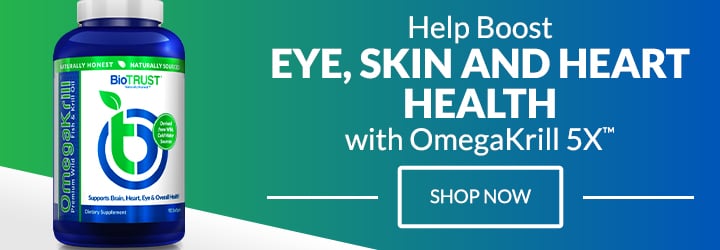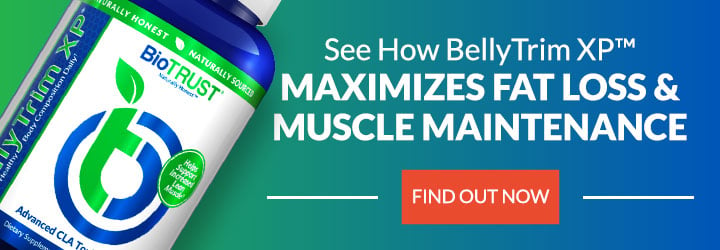6 Reasons You Should Eat the WHOLE Egg

Even though it shouldn’t, I still find it astonishing that some people think eggs—better said, egg yolks—are unhealthy. I shake my head when folks brag about their egg-white omelets. And I melt in disappointment when I hear nutritionists suggest fat-free egg substitutes.
If any of this sounds familiar, please don’t take it personally. It’s not your fault. It’s been beaten—no pun intended, I promise—into our heads over the years that egg yolks are “bad” for us. On top of that, many of us have been conditioned to believe fat is the dietary devil, so to speak. Fortunately, we do seem to be turning a collective corner as far as that goes due to the tireless, persistent efforts of health crusaders. Finally.
In other words, fat does not make you fat. What’s more, fat—included saturated fat—is not associated with an increased risk of heart disease.1,2 While we’re bursting mythical nutrition bubbles, let’s let the cat out of the bag: the cholesterol found in eggs—and any animal food, for that matter—has no appreciable impact on blood cholesterol.3 As a matter of fact, eggs can be quite heart healthy.
Now that the table has been set, let’s serve the main course: 6 reasons you should eat the whole egg.
1. Egg yolks are PACKED with nutrients. For starters, nearly half of the protein in an egg is found in the yolk. And while many people shy away from egg yolks because of their fat content, the fatty acid profile is relatively balanced. The greatest contribution of fat comes from “heart healthy” monounsaturated fats. Even more, egg yolks contain the essential omega-3 fatty acid DHA. This is critical for eye, brain, and heart health.
On top of that, ALL the fat-soluble vitamins (vitamins A, D, E, and K) are found in the yolk. So too are potent antioxidants, including lutein and zeaxanthin, which we’ll be coming back to again and again. What’s more, virtually all the following vitamins and minerals packaged in the incredible, edible egg are in the yolk:
- Calcium
- Iron
- Phosphorus
- Zinc
- Thiamin (B1)
- Panthothenic acid (B5)
- B6
- Folate
- B12
2. Eggs boost brain health. When you eat the whole egg, yolks are a very good source of vitamin B12. This vitamin energizes the brain and provides crucial protection by eliminating potentially toxic compounds (i.e., homocysteine) and supporting long-term nerve health and function.4 Eggs are also one of the few excellent sources of choline. And nearly all of it is in the yolk. A lesser-known nutrient that supports brain health and nervous system function, choline is the main building block of the neurotransmitter acetylcholine. Its significance in nervous system function cannot be overstated. The brain is particularly susceptible to oxidative stress. Eggs again are rich in the antioxidants lutein and zeaxanthin, which fight free radical damage. Lutein also boosts levels of compounds which protect existing brain cells, help create new ones, and improve neuroplasticity (the brain’s capacity to keep developing, changing, and healing itself). So it enhances the ability to learn and master new tasks.5,6
3. Eggs-ray vision. Hopefully you’re not tired of hearing about lutein and zeaxanthin… Referred to as the “macular carotenoids,” they act as primary filters of high-energy blue light. Plus, they support visual health and acuity by protecting against oxidative stress and inflammation. Specifically, this duo acts as a “protective shield” against damaging UV rays and harmful free radicals. As a result, they are often referred to as “natural sunglasses.”
What’s more, the all-important omega-3 fatty acids EPA and DHA, highly regarded for numerous health benefits including eye health and vision support, can also be found when you eat the whole egg.7–9
4. Eggs are heart healthy. Despite what you’ve probably been led to believe, regular egg consumption is heart healthy. In a recent 14-week crossover study, researchers from the University of Connecticut showed healthy adults eating 1 – 3 eggs per day for 4 weeks experienced a significant improvement in their blood lipid profile, potentially reducing the risk of heart disease, compared to eating no eggs.10 Dozens (get it…eggs come by the dozen) of other studies have shown, at worst, no association between egg consumption and risk of heart disease. At best, they’ve shown significant improvements in blood lipids to potentially lower the risk of cardiovascular disease.
Overall, eggs from pasture-raised hens provide a variety of nutrients that support cardiovascular health. This includes B vitamins (e.g., B12, folate), omega-3 fatty acids (e.g., EPA, DHA), and carotenoids (e.g., lutein, zeaxanthin). For instance, EPA and DHA are well-known for their beneficial effects on heart health, as research has shown they may lower triglycerides by up to 50% and result in a 45% reduction in cardiovascular events.12–14
5. Eggs can help trim the fat. When it comes to the battle of the bulge, appetite and satiety (feelings of fullness and satisfaction) are two critical factors that influence food intake. In a recent crossover study published in the journal Nutrients, researchers found that, compared to eating oatmeal, when healthy participants ate two eggs for breakfast daily for four weeks, they reported significant improvements in satiety, which correlated with lower levels of the hunger hormone ghrelin.15
Additional research has shown when you eat the whole egg for breakfast, it increases levels of additional satiety hormones, which decrease food intake and promote blood sugar control.17,18 Eggs are a good source of protein. And studies have shown protein-rich meals boost satiety, improve appetite control, reduce snacking, improve diet quality, reduce food motivation and reward, and support healthy weight management.19–23 In addition, eggs are also rich in healthy fats, which also help increase feelings of fullness and satisfaction.24
Not surprisingly, research has shown eating eggs daily for breakfast is an effective strategy to help control body weight.15,16,25 In fact, one study showed eating two eggs for breakfast helped overweight dieters lose 65% more weight and feel more energetic than those who ate a bagel breakfast of equal calories and volume.26
6. Eggs are among an athlete’s best friends. Speaking of protein, eggs are one of the highest quality sources of any whole food available. In a recent review in Nutrition Today, researchers analyzed more than 25 protein studies and concluded the natural, high-quality protein in eggs contributes to strength, power, and energy in several ways:27
- Sustained Energy. The protein in eggs helps promote steady, sustained energy because it helps support healthy carbohydrate metabolism and glycemic control. As a result, eggs help prevent a rebound effect or energy crash common with poor carbohydrate management. Further, eggs provide several B vitamins (e.g., thiamin, riboflavin, folate, B6, and B12) required for energy production.
- Muscle Strength. Dietary protein directly influences muscle mass, strength, and function in people of all ages. Eggs are a good source of protein, with a single egg providing six grams of high-quality protein, which can help individuals build and preserve muscle mass and promote healthy aging (i.e., prevent muscle loss). Eggs are also rich in the amino acid leucine, which is a “trigger” for building muscle, promotes recovery, and contributes to the body’s ability to use energy.
- Gold-Standard Protein. The high-quality protein in eggs provides all the essential amino acids our bodies need to build and maintain muscle mass. In fact, the quality of egg protein is so high scientists often use eggs as the “gold standard” for evaluating the protein quality of other foods.
Eat the Whole Egg
And of course, no matter how you like them prepared (personally, I’m a soft-boiled kind of guy), eggs are pretty darn tasty. The bottom line is eggs are packed with nutrition. If you regularly eat the whole egg, you are receiving some substantial health benefits you’d otherwise miss out on when you trash the yolk. With that being said, when it comes to choosing eggs, your best bet is to purchase eggs from pasture-raised hens, which tend to have a slightly healthier nutrition profile.
As I like to tell my one-year-old daughter Parker, who eats eggs on the regular, “Eggs are egg-cellent!” At her age, dad jokes are pretty cool.





 7 Signs Your Body is Seriously Low on Collagen (not just wrinkles)
7 Signs Your Body is Seriously Low on Collagen (not just wrinkles) Health Expert: "Turmeric Doesn't Work (unless...)"
Health Expert: "Turmeric Doesn't Work (unless...)" 3 Warning Signs Your Probiotic Supplement is a Total Waste
3 Warning Signs Your Probiotic Supplement is a Total Waste

